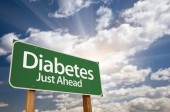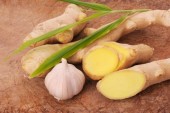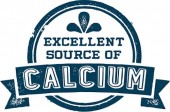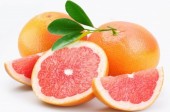Search Podcasts
Curcumin is known for easing pain, treating cancer and might be a natural treatment for depression.
Additional Info
- Segment Number 1
- Audio File healthy_talk/1508ht1a.mp3
- Organization Life Extension
- Guest Website Healthy Talk MD
- Length (mins) 10
- Waiver Received No
- Internal Notes NO GUEST
- Host Mike Smith, MD
Listen in as Dr. Mike provides the answers to a wealth of health and wellness questions.
Additional Info
- Segment Number 5
- Audio File healthy_talk/1507ht5e.mp3
- Organization Life Extension
- Guest Website Healthy Talk MD
-
Transcription
RadioMD Presents: Healthy Talk | Original Air Date: February 13, 2015
Host: Michael Smith, MD
It’s time to “Ask Dr. Mike” on Healthy Talk. Do you have a question about your health? Dr. Mike can answer your questions. Just email: AskDrMikeSmith@RadioMD.com or call now: 877-711-5211. The lines are open.
One more time, that’s 877-711-5211. Give me a call. Of course, you can always send your email questions to: AskDrMikeSmith@RadioMD.com. So, here’s a question from a listener, Ilena Novac, she says… Now, this is a long question, so I’m going to break it up, Ilena, into different parts. I hope you’re okay with that.
The first question, then, is from Ilena: “Could you talk, please, about insulin resistance?” Yes. Okay. So, insulin resistance. We know that sugar is an issue in this country. Diabetes is on the rise, pre-diabetes is almost epidemic. We’re overweight, high sugar levels and it’s just messing up how insulin functions in the body. So, let’s talk about insulin resistance for a second. Insulin resistance is very simply the hallmark of type 2 diabetes, okay? So, in type 1 diabetes, the patient doesn’t make any insulin. The pancreas just can’t do it. So, there’s no insulin. Now, why is that bad? Well, you need insulin to take the sugar—the glucose that’s in your blood—and put it inside the cell so the cell can use it as energy or, in some cases, store it. You can store it as glycogen or store it as fat. So, sugar has to get inside the cell and it’s insulin that brings it inside. So, in type 1 diabetics, there is no insulin. So, sugar can just build, build, build up, build up in the blood. Major, major problems, okay?
In type-2 diabetes, though, the person—is making insulin. They’ve made insulin all their life but the problem is, the insulin stops working. Or, it’s not really the insulin, it’s the cell itself. The cells become resistant to the effects of insulin—insulin resistance.
Why does that happen? Why does a cell become resistant to insulin? Why does the cell say, “I don’t like you any more insulin. I’m not going to let you work. I’m not going to let you influence me.” And, of course, if that happens—if insulin can’t do its job—sugar builds up in your blood. Type 2 diabetes--the build-up of sugar in your blood--why does that happen? Why does a cell not allow insulin to work? Well, there are a lot of different theories. Most likely, what happens is when you have had a lifetime of eating sugary foods. Every time you eat a sugary meal, a high carb meal, especially the simple sugars, not only do you spike sugar level, you also spike insulin because for a certain amount of sugar that’s all of a sudden being dumped into your bloodstream from your gut, your pancreas has to dump about the same amount of insulin to get that sugar from the blood into the cell. So, every time you spike sugar, you spike insulin. The theory is over a lifetime, that spiking of insulin—it just kind of makes the cell a little bit less influenced by it. It’s like the cell just says, “Oh, there’s insulin spiking again. Oh, whatever.” It’s like the cell just stops responding to it. It’s probably more of a protective mechanism to control how much sugar is actually coming in the cell. There’s actually an insulin receptor that can be down regulated on the surface of the cell when there’s too much insulin.
So, if you take a Petri dish, Ilena, of cells—like say, muscle cells—and you just flood it with insulin, you can actually measure the number of insulin receptors and how they decrease when you just flood that Petri dish with insulin. So, it’s probably some sort of protective mechanism, but, ultimately, what insulin resistance is, it’s just too many sugar spikes, too many insulin spikes. The cells throughout your body just get sick of it. They bring back those receptors. They down regulate those receptors so there are less of them on the surface and insulin can’t do its job. That’s insulin resistance. Hallmark of Type II Diabetes. I hope I explained that okay.
Now, the next question Ilena has is, “Well, what is the best way to find out if someone has insulin resistance?”
Well, the gold standard for diagnosing type 2 diabetes, which ultimately is caused from insulin resistance, is glucose tolerance testing. This is where, you know, you fast overnight and you come into the lab and you drink, I think it is 100 grams of a sugary solution, okay? And that’s just going to measure the impact of that sugary solution on your blood sugar level. Now, obviously, if you drink anything sugary, you’re going to spike your sugar a little bit, but the more insulin resistance there is—meaning the less insulin is working--the less effective insulin is, the greater those spikes. That’s all it is. The key hour is the 2-hour mark. So, you drink that sugary solution and they’ll measure your blood sugar at 1 hour and at 2 hours and at 3 hours, and 4 hours. The normal pattern is a little bit of a spike and then it comes down. You know, by the time you’re done with the test at 4 hours, its back to normal. That would be somebody that doesn’t have insulin resistance.
But, if you have insulin resistance, the spike initially is going to be greater and it’s going to hang up there longer. Right? It’s not going to come down. So, at the 2-hour mark, if your blood sugar level is still spiking over 200, that’s insulin resistance. It’s just that simple. It just means the insulin’s not working and it’s the best way to do it. Now, what some labs are doing, Ilena, is they’re just checking insulin at that same time as well because insulin’s spiking through that process as well. So, you can also do what is called an insulin tolerance test and that’s perfectly fine as well. But, the gold standard is glucose tolerance testing. I know more and more people are talking about insulin tolerance testing, but glucose tolerance testing is just fine. I don’t need to do another test. I don’t have to check another lab like insulin, add the cost to it, when if I just follow glucose spiking, I already have enough information. There’s no reason to really check insulin during that. If, at the 2-hour mark your sugar is still spiking over 200, that’s insulin resistance, I don’t need to look at anything else. That’s the gold standard.
She gives me some numbers here. Ilena says that her fasting insulin was less than 3. That’s good. A fasting insulin of less than 3 is good. If you have insulin resistance, think about this for a second. One of the ways your body is going to overcome insulin resistance—to break that resistance—is to make more and more of the insulin. So, people with insulin resistance tend to have fasting insulin levels that are in the 8, 9 range. Well, Ilena, you’re less than 3, so that’s actually good news. Now, you’ve given me some other numbers here. You say that your non-fasting insulin—maybe during a glucose tolerance test, maybe—was greater than 50. Now, I don’t know if that was at 1 hour or 2 hours or whatever, but that is kind of high. So, that has me a little worried. So, I might suggest for you, Ilena, at least at this stage, maybe a couple of natural things that have been shown to help the body with insulin resistance. Green tea extract and lipoic acid—two nutrients that have some decent research behind them for helping people break insulin resistance and then, you know what? There’s a prescription drug that’s not bad. It has good effect, very low side effects. That’s Metformin. I think Metformin is a good drug in these kinds of cases. A low dose—about 750 mg a day. I am an integrative medicine guy. I mean, I do whatever’s best for a person whether it’s Western, Eastern. It doesn’t matter to me. So, green tea, lipoic acid, maybe a smidge of Metformin in there might be helpful. So, that’s insulin resistance—the hallmark of type 2 diabetes.
I only have 60 seconds left, so I’m going to do a quick question here. “Is getting a cold…” Oh, okay. “Is getting a cold or even the flu linked to whether or not I get cold from being outside?” So, basically, cold feet, cold hands, you know, getting the chills outside in the cold air. Does that increase the risk of cold or flu? Ultimately, most of the research says “no”, but there was an interesting study, and I don’t have it in front of me, that came out talking about cold feet may actually increase the risk of the flu, but, for the most part, no. Keep your immune system strong whether you’re cold or hot. Doesn’t matter.
This is Healthy Talk on RadioMD. I’m Dr. Mike. Stay well. - Length (mins) 10
- Waiver Received No
- Internal Notes NO GUEST
- Host Mike Smith, MD
Listen in as Dr. Mike provides the answers to a wealth of health and wellness questions.
Additional Info
- Segment Number 4
- Audio File healthy_talk/1507ht5d.mp3
- Organization Life Extension
- Guest Website Healthy Talk MD
-
Transcription
RadioMD Presents: Healthy Talk | Original Air Date: February 13, 2015
Host: Michael Smith, MD
You’re listening to RadioMD. It’s time to “Ask Dr. Mike” on Healthy Talk. Call or email to ask your questions now. Email: AskDrMikeSmith@RadioMD.com or call: 877-711-5211. The lines are open.
This first question, from a listener, I think is really important because, you know, more and more we’re seeing a lot of anti-supplement studies and some of them aren’t all that great as far as how they’re designed. There’s definitely some biasness in there, so this question comes from Sam. He says, “Dear Dr. Mike: How can we as laypeople better evaluate a clinical study? You know, whether it’s a valid study or not?”
Well, you know, that’s a great question and, you know, maybe this is a whole segment, as a matter of fact, but let me just try to give you a few things that you can ask yourself when you’re reading a headline or you’re watching the morning news or, you know, Good Morning, America, whatever it is you watch, and they mention some study briefly, usually with a sensational headline.
You have to do some of your own research, right? You know, Sam, this is a great question. I think it’s important, but there’s not an easy answer. You do have to do some work. Don’t forget: PubMed.com is a great site, right? When you go to PubMed.com, it literally is a huge database of all of the publications in medicine—in science. I mean, it’s all right there and you just search. You know, let’s say you’re watching Good Morning, America and the headline is “Grape Seeds Cause Cancer. Stop Taking Grape Seed Extract,” or something like that. I just totally made that up, right? That’s not a headline. So, you would go to PubMed.com, right? Don’t believe—I mean, listen to the show, whatever. Take it with a grain of salt, but do your due diligence. You know? Be a smart consumer, right? Go to PubMed.com and type in “grape seed extract” and “cancer”. Just type that in and you’ll see, you know, what’s out there; what’s going on. That one study might even pop up first, right? You may have to play around with the search terms a little bit on PubMed. Maybe it’s just “grape seed” and “cancer” or “grape seed cancer”. Whatever. You’ve got to play around with it. So, you do have to do some work. By the way, all good websites, all good shows, you know, like RadioMD.com and all the shows on this wonderful network, we provide you the exact reference and if we don’t it’s just by mistake. But we, 99% of the time, we will tell you exactly the journal, what year. That’s even easier. You plug that into PubMed and that one study just pops up. That’s it. There are no choices. So, good solid companies, institutions, networks—they provide you with that. It’s not hard to find. So, it’s always these mainstream media shows that make it hard to find some of the references, but anyway, PubMed.com. That’s your “go to”. So, here’s just some things.
So, when you see that headline, just a few things to remember. Mainstream media, number one, sensationalizes everything, alright? And that’s just the first thing to remember. Positive or negative. Even if it’s a positive study about grape seeds, right? Mainstream media—those morning shows—are going to make it seem even too good to be true or too bad to be true. So, just remember that, okay?
So, number two, you know, in most cases, Sam, these anti-supplement studies, they are not what the study was actually designed to look at. In most anti-supplement studies that have been published over the last, say, five or six years, what’s happened is there was a study about, let’s say, cancer and a chemotherapy drug and how nutrition affects the chemotherapy drug or whatever. And then, they decided to do a subanalysis out of that on just grape seeds, grape seed extract. So, most anti-supplement studies are borrowing from another study that was designed to do and investigate something totally different. That’s number two. So, the headlines are sensationalized and it’s not an original study. They’re borrowing from another study. And that’s not necessarily a bad thing to do, but as a doctor, I know that when I look at a subanalysis from another study looking at a different issue, I should never draw any definite conclusions. That’s the point. That’s the problem is you have these researchers who are biased against supplements; they’re borrowing from another study; they’re doing a subanalysis and then, they act like they’ve got some definitive conclusion. You should never do that off a subanalysis. Never. So, that’s number two.
Number three: ask the question, “Who?” What I mean by that is who was in this study? Who were the participants? What you will find in most cases, when it’s anti-supplement, is the “who” were sick people? People who already had established disease, in most cases. Not all, but most cases, and in these studies, some of these people the conventional medicines weren’t even helping. There was one a couple years ago that was looking at fish oil and heart disease and the conclusion was that “fish oils do nothing for your heart”. Well, it turns out the people they were studying were people who already had heart attacks. Well, I’ve got news for you. There are not many conventional medicines that are helpful in those cases. I mean, there are some that reduce the risk of a second heart attack, but not all that great. So ask, “Who?” In most cases, it’s already people who have established disease or, the other side of it is people who are living, you know, the average American lifestyle which is pretty unhealthy. Okay. So, that’s number three.
Number four: ask the question, “What?” What are they studying? What is this nutrient? Okay, since I’ve been using grape seed extract, let’s just go with that one. What about this grape seed extract? Where did they get it from? Is it the right dose? Is it the right quality? Are they even asking those questions? What you’re going to find is the next question--the “How?”—the how are they studying this? Sam, it’s mostly surveys. So, when you ask questions like, “Well, how much grape seed extract were these people taking? What was the quality of it?” They don’t have any of those answers because the way—the process for gathering; the how did they gather that information—was simply through surveys where all they do is they simply ask the people in this study about something totally different, by the way. “Hey, who’s taking grape seed extract?” “Oh, I am.” And maybe that person took it once in their life. Maybe they took it three times. Maybe they do take it every day, but they lump all of those people as grape seed extract users. They lump them all together, so the “what”—the dose of the grape seed, the quality of the grape seed—it’s never even asked because they don’t ask that question. All they do in the “how”—how are they studying this—it’s with a survey. They’re just lumping you into two different groups. People who have used grape seed extract at some point in their life and people who have never used it. Or, at least that’s what they say, based on these surveys. So, if you just remember: headlines are sensationalized, okay? In most of these anti-supplement studies, they are using a subanalysis approach. So, they’re borrowing from an original study that was studying something totally different, right? Number three: in many cases, the “who” are already sick people or unhealthy people—unhealthy lifestyles. The “what”—the quality of the extract, the dose, is not even answered because they’re using “how”? Surveys.
So, look for those things. Look for was this a new study or an old study? Who are they studying? What are they studying? How are they studying it? In most cases, you can answer it with sick people, you know, surveys and an old study. So, again, it’s not that you can’t do that. It’s not that you can’t study things that way, you just can’t draw definitive conclusions.
Kevin, how am I doing on time? I know you said in my ear, but I…Okay. Thirty seconds.
I got so wrapped up in all of that because this is important. We’re going to see more and more anti-supplement studies come out there. So, be a smart consumer. Use PubMed, ask the “who” the “what” and the “how” before you believe those headlines.
This is Healthy Talk on RadioMD. I’m Dr. Mike. Stay well. - Length (mins) 10
- Waiver Received No
- Internal Notes NO GUEST
- Host Mike Smith, MD
Constipation is the most common gastrointestinal problem, affecting roughly 42 million Americans.
Additional Info
- Segment Number 3
- Audio File healthy_talk/1507ht5c.mp3
- Organization Life Extension
- Guest Website Healthy Talk MD
- Length (mins) 10
- Waiver Received No
- Internal Notes NO GUEST
Blood clots can be caused by numerous conditions and can be potentially dangerous if left untreated.
Additional Info
- Segment Number 2
- Audio File healthy_talk/1507ht5b.mp3
- Organization Life Extension
- Guest Website Healthy Talk MD
- Length (mins) 10
- Waiver Received No
- Internal Notes NO GUEST
- Host Mike Smith, MD
A study suggested adding extra calcium to your diet could be dangerous to your health. Why are so many doctors disagreeing?
Additional Info
- Segment Number 1
- Audio File healthy_talk/1507ht5a.mp3
- Organization Life Extension
- Guest Website Healthy Talk MD
- Length (mins) 10
- Waiver Received No
- Internal Notes NO GUEST
- Host Mike Smith, MD
Listen in as Dr. Mike provides the answers to a wealth of health and wellness questions.
Additional Info
- Segment Number 5
- Audio File healthy_talk/1507ht4e.mp3
- Organization Life Extension
- Guest Website Healthy Talk MD
- Length (mins) 10
- Waiver Received No
- Internal Notes NO GUEST
- Host Mike Smith, MD
Listen in as Dr. Mike provides the answers to a wealth of health and wellness questions.
Additional Info
- Segment Number 4
- Audio File healthy_talk/1507ht4d.mp3
- Organization Life Extension
- Guest Website Healthy Talk MD
- Length (mins) 10
- Waiver Received No
- Internal Notes NO GUEST
- Host Mike Smith, MD
Wellness isn't just about focusing on your waistline.
Additional Info
- Segment Number 3
- Audio File healthy_talk/1507ht4c.mp3
- Featured Speaker Paula Felps, Live Happy Science Editor
- Guest Website Live Happy
-
Guest Bio
 Live Happy Science Editor Paula Felps has worked as a freelance writer and editor since 1998.
Live Happy Science Editor Paula Felps has worked as a freelance writer and editor since 1998.
Covering topics ranging from health and fitness to luxury cars and travel to business and technology, she has written for such publications and websites as Executive Travel, American Driver, Self, Reserve, HI Luxury, Go Magazine, Private Clubs, Earth911.com and iVillage.com.
She is the author of six published books and has served as ghostwriter or editor on nearly a dozen other book projects, ranging on topics from business to spirituality.
In addition to her work as a writer and editor, Paula is an advocate for sexual abuse survivors and founded the Sexual Abuse Resource Network in 2011. When she isn't at her computer, she is probably practicing yoga or doing something with her two Boston terriers. - Length (mins) 10
- Waiver Received No
- Host Mike Smith, MD
Some scientists suggest you need love in order to survive.
Additional Info
- Segment Number 2
- Audio File healthy_talk/1507ht4b.mp3
- Featured Speaker Paula Felps, Live Happy Science Editor
- Guest Website Live Happy
-
Guest Bio
 Live Happy Science Editor, Paula Felps, has worked as a freelance writer and editor since 1998.
Live Happy Science Editor, Paula Felps, has worked as a freelance writer and editor since 1998.
Covering topics ranging from health and fitness to luxury cars and travel to business and technology, she has written for such publications and websites as Executive Travel, American Driver, Self, Reserve, HI Luxury, Go Magazine, Private Clubs, Earth911.com and iVillage.com.
She is the author of six published books and has served as ghostwriter or editor on nearly a dozen other book projects, ranging on topics from business to spirituality.
In addition to her work as a writer and editor, Paula is an advocate for sexual abuse survivors and founded the Sexual Abuse Resource Network in 2011. When she isn't at her computer, she is probably practicing yoga or doing something with her two Boston terriers. - Length (mins) 10
- Waiver Received No
- Host Mike Smith, MD









